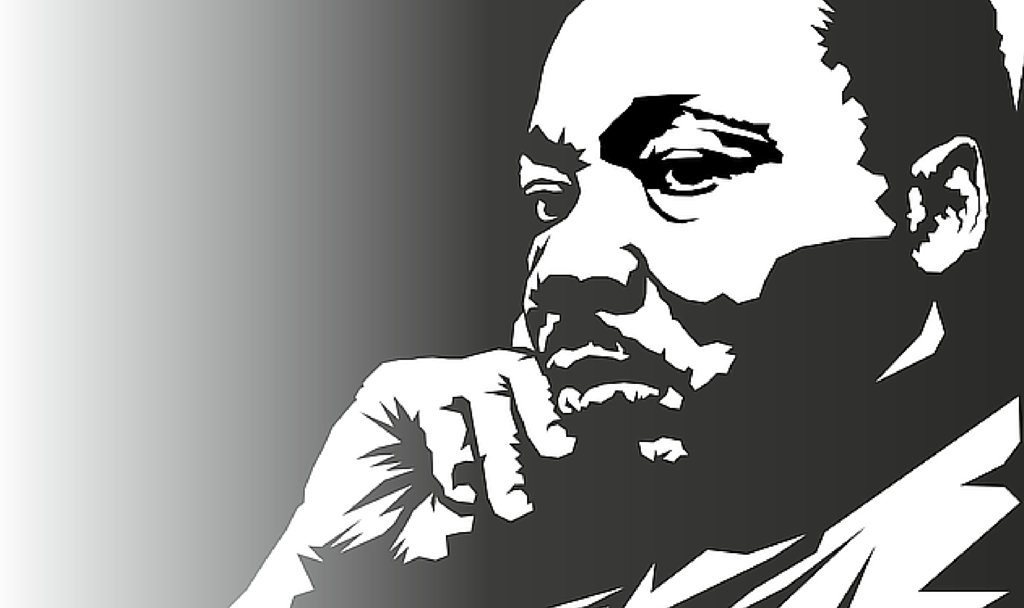“I have a dream today.”
―Martin Luther King Jr.
Yesterday, Americans commemorated one of their most famous dreamers. It is a day when that history-making “I have a dream” speech is retold and celebrated every year…
“I have a dream that one day this nation will rise up and live out the true meaning of its creed: ‘We hold these truths to be self-evident, that all men are created equal.’”
It is a day when Americans from all walks of life and all backgrounds pause to remember the transformative power of a boldly stated, epic dream.
“I have a dream that one day every valley shall be exalted, and every hill and mountain shall be made low, the rough places will be made plain, and the crooked places will be made straight; and the glory of the Lord shall be revealed and all flesh shall see it together.”
Martin Luther King Jr. made history because he was driven by a highly personal, yet powerfully transcendent dream—a dream that went beyond his own life, generation, or cultural climate.
“I have a dream that my four little children will one day live in a nation where they will not be judged by the color of their skin, but by the content of their character.”
Do you have such a dream? Do you have a dream that reaches beyond your life and into the next generation? Do you have a dream that transcends the orbit of your day-to-day desires and reaches for the stars of freedom and liberty for all—for those still oppressed, exploited, disenfranchised, and enslaved?
“I have a dream that one day on the red hills of Georgia, the sons of former slaves and the sons of former slave owners will be able to sit down together at the table of brotherhood.”
The dream so profoundly articulated by Reverend Martin Luther King Jr. made history. And yet, he could not have made history otherwise.
As we march together into the year ahead, we’ve been discussing the destiny-altering power of a dynamic vision. I hope you have taken time to consider the positive impact you might have in your various spheres of influence.
Most people float through life without any clear intention regarding the mark they want to leave on history—even if only their own family’s history. I want to help you build your capacity to envision what more is possible
And to do that, we must begin with not only the power of a dream, but also the incredible power we have been given to dream.
History belongs to the dreamers—those driven by a clear and compelling vision of a better future.
Look at Abraham, Noah, and Moses who dreamt of a new life, home, and identity for their people; they might not have lived to experience it, but because they were able to dream it, it came to pass—and David who dreamt of building a magnificent temple for the Lord his God; he didn’t live to see it, but his dedication assured his son would.
These heroes of the Old Testament carried dreams that went beyond their own lives. They knew how to dream transculturally and multi-generationally.
Let me ask you, “How much are you willing to invest in a dream you might not see come to pass?” Those are the kinds of dreams that make history.
A dream is nothing more than a vision of a possible future.
And whatever you envision and deliberately focus your attention on will come to pass. Ancient wisdom from all parts of the world has long understood that you bring to pass what you steadily fix your gaze upon.
Furthermore, biblical wisdom teaches you will ultimately become like that which you behold. In his letter to the Corinthians, the Apostle Paul wrote that as we behold the Lord, we are changed into His image (see 2 Corinthians 3:18) and urged the Philippians to only focus their attention on what is virtuous and praiseworthy (see Philippians 4:8). Why? Because what you focus on becomes your identity and therefore your reality—it frames your belief system about what is possible.
The thoughts of your mind govern your capacity to grow,
just as your mindset governs your capacity to dream.
Your sense of identity—or how you identify yourself—is determined by the internal agreements you make about who you are, where you belong, and what you are capable of. You mirror what you identify with—you reflect what you see and focus upon.
What dominates your attention determines the direction of your life. This is why King David declared he would “refuse to look at anything vile and vulgar” (Psalm 101:3) and why you should “guard your heart above all else, for it determines the course of your life” (Proverbs 4:23).
“The lamp of the body is the eye. If therefore your eye is good,
your whole body will be full of light.”
Matthew 6:22
This is why it’s so critically important to articulate your dream—to visualize it—to create not only a powerful word picture by writing it down, but to also display images on a vision board so you can keep it before your eyes visually.
This is a powerful principle. Jacob tapped into this “law” (what some call the “law of attraction”) to breed the kind of sheep he wanted.
“Jacob took some fresh branches from poplar, almond, and plane trees and peeled off strips of bark, making white streaks on them. Then he placed these peeled branches in the watering troughs where the flocks came to drink, for that was where they mated. And when they mated in front of the white-streaked branches, they gave birth to young that were streaked, speckled, and spotted” (Genesis 30:37-39).
Again, we will become like Christ when we see Him (see 1 John 3:2)—and as we behold His glory, we are transformed into His image (2 Corinthians 3:18). That is powerful! So let me ask you, “What are you beholding on a daily basis?”
What you behold you will become—
and what you meditate upon you will give birth to.
In other words, what grows in your mind will grow in your life. This is why the life of the soul is so vitally important. And it’s why I wrote the Soul Series of books…most especially, The Prosperous Soul.
In the coming weeks, we will be talking about how to create the necessary conditions for transformational growth—how you can prosper your life by rewiring your mind through the power of vision—and how putting that vision to work enables you to dream bigger.
If you haven’t already, get ahold of The Prosperous Soul and the companion devotional, 40 Days to a Prosperous Soul. Follow along as we study how to expand our vision in the eight key areas of prosperity. Allow this study to help you craft a more clear and compelling vision of what is possible.
Begin to prosper your soul by expanding your capacity to dream.
It starts with making a choice—a single decision. You are always only one decision away from living the abundant life Christ promised—as He made so abundantly clear in John 10:10: “My purpose is to give them a rich and satisfying life. I came so they can have real and eternal life, more and better life than they ever dreamed of.”
But you have to choose. You have to choose what you set your sights on—you must choose the dream that will frame your vision of what is possible in the future.
“Dare to visualize a world in which your most treasured dreams have become true.”
—Ralph Marston
You must decide to hope. You must decide to be joyful, to be grateful, to be expectant—to look for and see a more prosperous future.
Can you envision it? Does it have the potential to hold your gaze? If not, what would? Dig deeper. Move past the “what” of desire to the more powerful “why” of drive. What drives you? Most people have no idea. They don’t even know what it is they really want!
I challenge you to search how many times in the New Testament Jesus asked those seeking His help, “What do you want?”
“What do you want Me to do for you?”
Mark 10:51
Today, as you read this, ponder what it is you really want. What’s driving you? Ultimately, this is significantly more important than any consideration of what could be holding you back.
The Lord told Jeremiah His plans were to prosper him—to give him hope (Jeremiah 29:11).
Hope results from a positive expectation—of a sense of possibility. The author of Hebrews wrote that hope is the anchor of our souls (Hebrews 6:19)—and it is what makes room for the joy that strengthens us (Nehemiah 8:10).
“We must accept finite disappointment, but never lose infinite hope.”
—Martin Luther King Jr.
Create an image of what you want to see and then act “as if.” What is that upward call you are pressing toward—what is holding your gaze? How do you endeavor to be? Now, act as if it were so.
As the ancient philosopher Socrates so famously said, “Endeavor to be how you desire to appear.” And never, never, never lose hope—because you are always just one decision away from living the life of your dreams.
“If you lose hope, you lose the vitality that keeps life moving, you lose that courage to be, that quality that helps you go on in spite of it all.
And so today I still have a dream.”
―Martin Luther King Jr.

